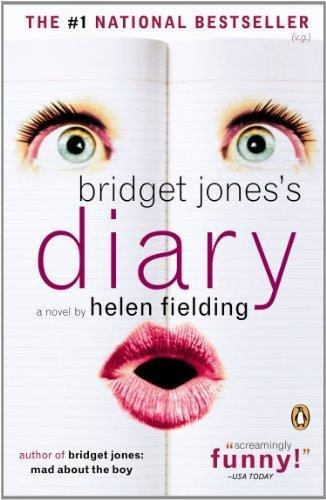Plot Summary
New Year, New Resolutions
The story begins on New Year’s Day, with 30-something Bridget Jones hungover and listing her resolutions for the year. Her goals are a familiar mix of self-improvement: lose weight, drink less, stop smoking, and find a stable relationship with a sensible man. She is immediately forced to attend her parents’ friends’ New Year’s Buffet, where her mother, Pam, tries to set her up with Mark Darcy, a successful, recently divorced barrister. The encounter is a disaster. Bridget finds Mark arrogant, rude, and appallingly dressed in a V-neck diamond-patterned sweater. He, in turn, seems completely uninterested in her. Bridget returns to her life in London, working in publishing and navigating her social life with her close friends: Jude, Sharon, and Tom. Her main romantic fixation is her charming, handsome, and notoriously womanizing boss, Daniel Cleaver.
The E-mail Flirtation and a Fling with the Boss
Bridget and Daniel begin a flirtatious correspondence via their office e-mail system. The banter revolves around Daniel’s teasing comments about Bridget’s short skirt. The witty, secretive exchange builds sexual tension until Daniel finally asks her out. Their first date is nearly derailed when, on the brink of sleeping together, Daniel declares, “This is just for fun, right? I don’t think we should get serious.” Infuriated by his “emotional fuckwittage,” Bridget invokes the advice of her feminist friend Sharon and storms out. However, their mutual attraction is too strong to ignore. They eventually sleep together and begin a relationship that, for Bridget, is filled with blissful highs and anxious lows as she constantly worries about Daniel’s commitment. Throughout this period, Bridget also contends with her eccentric and meddling mother, who embarks on a TV presenting career after leaving Bridget’s mild-mannered father for a Portuguese conman named Julio.
Family Crisis and Heartbreak
The relationship with Daniel comes to an abrupt and humiliating end. After a disastrous weekend getaway with Daniel, where she learns he has a history of cheating, Bridget comes home to his apartment unannounced to find him with another woman—a tall, naked, and bronzed American named Branca. Heartbroken, Bridget breaks up with him and spirals into a period of despair, consoled only by her friends and copious amounts of Chardonnay and chocolate. Simultaneously, her mother’s affair with Julio turns into a national scandal when he is exposed as a timeshare fraudster who has conned their friends and family—including Mark Darcy’s parents—out of thousands of pounds. Pam goes on the run with him, leaving Bridget to look after her devastated father and deal with the police investigation.
A New Career and a New Perspective on Mr. Darcy
Determined to change her life, Bridget quits her job to escape the daily torture of seeing Daniel. Leveraging her mother’s TV connections, she lands a chaotic new role as a researcher at the current affairs program Good Afternoon!. The job is a whirlwind of bizarre assignments, from finding a man whose penis was burned off by a firework to reporting on lesbische sex lives.
During this time, Bridget has several chance encounters with Mark Darcy. At a book launch, he defends her against the snobbery of her colleagues. At his parents’ ruby wedding anniversary party, he is kind and attentive. She slowly begins to see him not as the stuffy bore she first met, but as a decent, intelligent, and honorable man. During a heated argument, Mark reveals the true source of his animosity toward Daniel Cleaver: Daniel, his former best friend at Cambridge, slept with his wife. This revelation recasts Daniel as a thorough villain and Mark as a wronged, sympathetic figure.
The Paella Pole and an Exclusive Interview
Bridget’s television career hits a new low when a live report from a fire station goes horribly wrong. Tasked with sliding down the firefighter’s pole to start her segment, she gets her timing wrong and is caught on national television awkwardly trying to climb back up the pole. The clip goes viral, making her a laughingstock.
Just as her career seems over, Mark Darcy intervenes. He is defending Elena Rossini, a high-profile au pair acquitted of murder. Knowing Bridget needs a big story, he grants her an exclusive interview—the only one Rossini gives—effectively saving her job and turning her into a journalistic hero at her network. He later asks her out on a date, but a comical misunderstanding involving Bridget’s loud hairdryer and Mark’s repeated calls leads them both to believe the other has stood them up.
Christmas Redemption
The family crisis reaches its peak at Christmas. With her mother still a fugitive and her father in despair, Bridget resigns herself to a bleak holiday. Mark Darcy, however, has been working behind the scenes. He flies to Portugal, tracks down Julio, and masterminds a clever plan that leads to Julio’s arrest and the recovery of the stolen money upon his return to England on Christmas Day.
In the middle of a chaotic family Christmas dinner, Mark Darcy arrives, fresh from his triumph. He calmly explains the situation, rescues Bridget from the escalating family drama, and whisks her away to a luxurious country hotel. There, he confesses he has been in love with her since the beginning, despite her eccentricities and the bumblebee socks he wore at their first meeting. Bridget, finally seeing him for who he is, reciprocates his feelings. The diary ends with them together, and Bridget reflecting on her year of romantic disasters and personal growth, finally having achieved her resolution of finding a stable relationship with a good man.
Characters
Bridget Jones
The protagonist and narrator, Bridget is a quintessential “everywoman” of the 1990s. In her early thirties and single in London, she is defined by her anxieties about her weight, her career, and her love life, which she meticulously chronicles in her diary with daily tallies of calories, alcohol units, and cigarettes smoked. Bridget is witty, self-deprecating, and deeply relatable in her constant battle between her aspirations for self-improvement and her human weaknesses. Despite her insecurities and frequent “mini-breaks” into despair, she is fiercely loyal to her friends and possesses an underlying resilience. Her journey is one of learning to value herself beyond her relationship status or the number on the scale, ultimately leading her away from a toxic attraction and toward genuine love.
Daniel Cleaver
Daniel is Bridget’s handsome, charming, and dangerously seductive boss. He embodies the archetype of the caddish “bad boy.” An expert flirt with a quick wit, he is sexually confident but emotionally hollow and incapable of commitment—a prime example of what Bridget’s friends call “emotional fuckwittage.” His relationship with Bridget is built on thrilling banter and physical chemistry, but he is ultimately deceitful and selfish. His betrayal confirms him as the story’s Wickham figure, whose appealing exterior hides a morally bankrupt core.
Mark Darcy
A highly successful human rights barrister, Mark is the story’s modern-day Mr. Darcy. Initially, he appears to Bridget as stiff, arrogant, and socially awkward, making a terrible first impression. However, as the story progresses, his true character is revealed. Beneath his reserved exterior lies a man of deep integrity, kindness, and unwavering loyalty. He repeatedly and quietly comes to Bridget’s aid in her moments of greatest crisis—defending her character, saving her career, and ultimately rescuing her family. His evolution in Bridget’s eyes, from a figure of ridicule to the ideal romantic hero, is central to the novel’s arc.
Bridget’s Mother (Pam Jones)
Pam Jones is a source of both constant exasperation and unexpected strength for Bridget. Bored with her quiet suburban life, she impulsively leaves her husband for a dubious conman and launches a flamboyant, if short-lived, television career. She is self-absorbed, meddles relentlessly in Bridget’s life (especially her love life), and has a flair for the dramatic. However, despite her chaotic and often selfish behavior, she possesses a fierce, if misguided, maternal love and occasionally delivers surprisingly astute advice that helps Bridget navigate her crises.
Core Themes
The Search for Love and Self-Worth
At its heart, Bridget Jones’s Diary is about the universal search for love and acceptance in a world that often feels judgmental. Bridget is plagued by societal pressure—the “Smug Marrieds” who question her single status, the media’s impossible standards of beauty, and the ticking of her biological clock. Her diary is a testament to her struggle for self-worth, which she mistakenly ties to external validators: her weight, having a boyfriend, and achieving a perfect life. Her journey from infatuation with the unsuitable Daniel to a mature relationship with the honorable Mark mirrors her internal journey toward self-acceptance. The novel suggests that true happiness is found not in conforming to external ideals, but in embracing one’s own imperfect, authentic self.
The Modern Woman’s Condition
The novel serves as a sharp and humorous social commentary on the anxieties faced by a generation of independent, career-oriented women. Bridget embodies the contradictions of modern feminism: she is financially independent and professionally ambitious, yet she is also obsessed with finding a man and fears ending up a “spinster.” The narrative is filled with references to self-help culture (Men Are from Mars, Women Are from Venus), dieting fads, and the endless psychoanalysis of male behavior, capturing the complex landscape of dating and identity in the late 20th century.
Friendship as a Support System
A central theme is the vital importance of friendship as an alternative family. Bridget’s friends—the cynical feminist Sharon, the romantically-challenged Jude, and the witty gay friend Tom—form her core support system. They are her confidants, advisors, and emergency crisis team. Their late-night, wine-fueled conversations provide the solidarity and perspective Bridget needs to survive her romantic disasters and family dramas. The novel portrays this “urban family” as an essential source of unconditional love and stability in the transient, often-disappointing world of modern relationships.
Appearance vs. Reality
The novel consistently plays with the theme of appearance versus reality. Daniel Cleaver, with his charm and good looks, appears to be the perfect romantic hero but is, in reality, a deceitful cad. Conversely, Mark Darcy initially seems dull, rude, and undesirable but is revealed to be a man of great integrity and passion. Bridget’s journey involves learning to trust her instincts and look beyond superficial first impressions to discern true character. This theme also applies to Bridget herself; her external chaos and self-doubt often mask a resilient and capable woman who, despite her blunders, successfully navigates a demanding career and complex personal crises.
Plot devices
The Diary Format (Epistolary Novel)
The novel’s structure as a diary is its defining literary device. The first-person, present-tense entries create a sense of immediacy and intimacy, giving the reader direct access to Bridget’s unfiltered thoughts, anxieties, and humorous observations. This format allows the narrative to be deeply character-driven, focusing on Bridget’s subjective experience rather than an objective recounting of events. The daily statistical tallies of her weight, alcohol consumption, and calories serve as a powerful recurring motif, grounding the story in her obsessive quest for self-control and hilariously highlighting the gap between her goals and her reality.
Allusion to Pride and Prejudice
Bridget Jones’s Diary is a clever, conscious, and comedic modern retelling of Jane Austen’s Pride and Prejudice. The parallels are explicit: the honorable, wealthy, and initially misunderstood “Mark Darcy” is a direct homage to Fitzwilliam Darcy. The charming, roguish “Daniel Cleaver” functions as the novel’s George Wickham, complete with a hidden history of betraying Darcy (by sleeping with his wife). Bridget herself is a modern-day Elizabeth Bennet—witty, prone to prejudice, and ultimately won over by a man she initially loathed. This classic romantic framework elevates the story from a simple comedy to a resonant romance with timeless appeal.
Humorous Irony and Slapstick
The novel’s comedy is driven by irony and slapstick. Dramatic irony is constant, as the reader is often aware of Bridget’s self-deception or the folly of her choices long before she is. Situational irony abounds in the disastrous outcomes of her best-laid plans, such as her culinary attempts (the blue soup, the marmalade), her ill-fated television report from the fire station, and her appearance at a formal garden party dressed as a Playboy bunny. Bridget’s dry, understated narration of these mortifying events creates a hilarious contrast between the absurdity of her situation and her deadpan delivery, establishing her as a classic comedic heroine.





